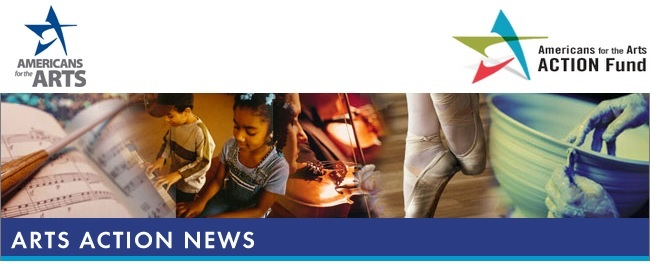
Dear Arts Advocate:
We want to keep you updated on last week’s widely anticipated net neutrality ruling at the Federal Communications Commission (FCC) and what it means for artists and arts organizations.
What is “net neutrality?”
It’s the idea that your Internet service provider (ISP), like Verizon or Comcast, doesn’t discriminate when it comes to Internet traffic-meaning throttling or blocking legal content that you want to access or share. A company also can’t pay your ISP to speed up service for certain sites.
A lot is at stake. At the heart of the issue is how to ensure an open Internet that preserves everyone’s ability to communicate freely online to learn, engage, express themselves, innovate, and be entrepreneurial. The open architecture of the Internet has created unprecedented opportunities for artists, cultural organizations, and entrepreneurs.
How did we get here?
As you know, we have been tracking developments. In July, we encouraged arts advocates to take action and submit a comment to the FCC. We took our own advice and were one of the more than 4 million Americans who submitted comments to the FCC as they were considering what to do in light of the lawsuit that threw out the previous net neutrality rule. The topic was prominent during some of our arts & technology national policy roundtables and emerged as a clear grassroots movement – boosted further by John Oliver’s amusing coverage of the topic.
For several years, net neutrality concerns have been a part of our annual message to Congress, as part of Arts Advocacy Day. Moreover, in the days right before last week’s FCC ruling, more than 85 artists, organized by the Future of Music Coalition, weighed in showing support for the FCC Chairman’s anticipated plan, including members of R.E.M., Aerosmith’s Joe Perry, and OK Go. Artists also united together before there even was an official public comment period, including Eddie Vedder, Michael Stipe, Neko Case, Erin McKeown, Fugazi, Mark Ruffalo and Evangeline Lilly, who wrote to support protecting the open Internet as a vehicle for free expression and collaboration.
Last week’s ruling
In a widely anticipated ruling on February 26, the FCC ruled – in a split (3-2) vote and along party lines – to reclassify broadband as a utility, which would give the commission more regulatory power over Internet providers. It would be regulated like your water or electricity. Here is an FCC fact sheet.
What happens now?
As mentioned, the FCC vote was divisive and has resulted in some members of Congress looking for a legislative solution. Sen. John Thune (R-SD) and Reps. Fred Upton (R-MI) and Greg Walden (R-OR) are working on their own alternative plan for net-neutrality policy. Members of the U.S. House Judiciary Committee also have penned sharp opposition to the FCC rule. Legal action is expected. Plus, there are different opinions on whether new state and local fees might come to your service bills.
On Arts Advocacy Day – March 24th, Americans for the Arts, along with 85 national cosponsors and 400+ arts advocates will share their message of support for net neutrality with members of Congress. Throughout the year, we will continue tracking the legislative response to this net neutrality ruling, and make sure you know when your voice needs to be heard so that artists and creative entrepreneurs can continue to reach audiences, build businesses, and share their work.
Thank you for your support of the arts. Via Americans for the Arts
